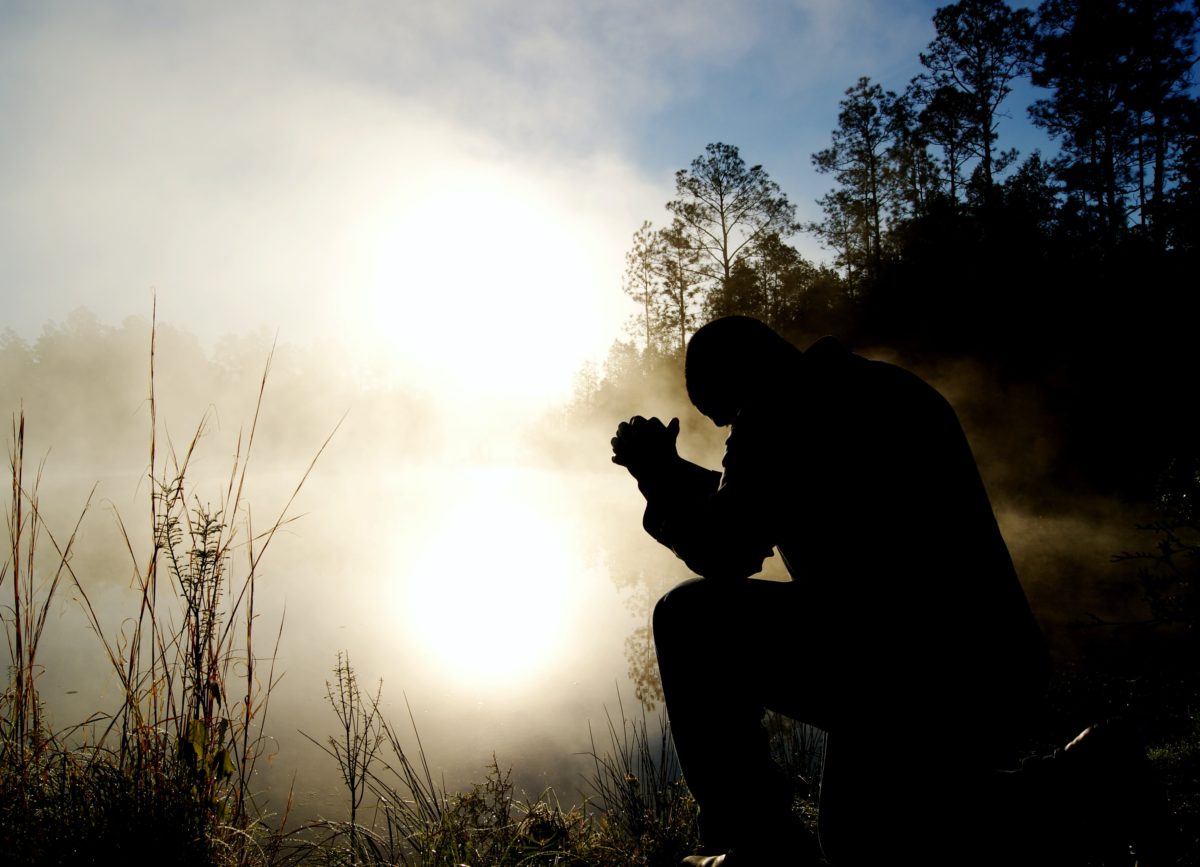As I was getting my annual physical a couple of weeks ago, the intake nurse asked me, among other things, ‘Have you felt down or depressed over the course of the last year?’ I must have given her an incredulous look, because she gave me a little, understanding smile. I said, ‘Who hasn’t?’
The pandemic has been wreaking havoc on so many levels. About 2.5 million people have died of COVID-19 worldwide –and not quite one fifth of these, 490,000, in the U.S. alone. We all know about the devastating economic impact for many. But the pandemic also has affected most, if not all of us psychologically and emotionally.
For many, there have been added stresses as they have tried to juggle work and school from home. Just being in and around the house most of the time increases tensions between household members. Many, especially the elderly, have felt isolated.
There are statistics that say that rates of depression tripled in the U.S. among adults over the course of the last year. Substance abuse has been on the rise. And though there seems to be no data indicating that the overall suicide rate in this country has gone up, there has been a significant uptick in suicides among people of color, the majority of them in poor neighborhoods. And just to let you know, I got this information from an article in the New York Times that was first published January 21st.
All that data makes me even more depressed. There has been so much suffering, so much dying. And my constant prayer these days is, ‘Kyrie eleison’, ‘Lord, have mercy’.
Not being able to be with others affects us all to some degree or another. If we have learned one thing this past year, it is that we are social creatures. In Genesis 2, we read that, as Adam is the only human being on the newly created earth, God says, ‘It is not good that the man should be alone’ – and creates Eve as a partner and helpmate.
Yes, there are always those who don’t mind being alone – but by and large, we as humans thrive when we interact with others, or just experience the presence of others around us. Community makes us feel safe. Community, communication, and contact nourish us and make us more resilient. I think many of us have learned during the last year how special it is to actually be in the physical presence of someone instead of talking on the phone or via the computer. How much we miss physical contact – handshakes, hugs, or even the fleeting and reassuring touch on the shoulder or the arm.
As the above mentioned statistics show: something happens to us when we lose contact, and especially physical contact, with people. The inner demons we all carry around to some degree have a much greater chance of taking hold of us.
I have to say, in the light of all of this, I read the well-known story of Jesus’ temptation in the wilderness with new eyes. What exactly is Jesus experiencing as he is isolated in the wilderness, alone, deprived of community and human touch? What is the nature of the Satan he encounters? Is it possible that Jesus, fully God, but fully human as well, encounters the kind of inner demons we all have to deal with?
The temptation story we heard today, from the gospel of Mark, is much more bare bone than the temptation stories we find in Matthew and Luke, where Satan has three very concrete temptations: turn these stones into bread, and you’ll never be hungry again! Throw yourself from the pinnacle of the temple, for surely God will catch you. Worship me, and you will have power over all the world! Forgo your humanity! Test your divine powers, Jesus!
No, in Mark we only have 1 verse describing the scene: Jesus was in the wilderness 40 days, tempted by Satan; and he was with the wild beasts; and the angels waited on him. That’s it.
But there are some interesting details surrounding this story: we read that it is the Holy Spirit who drives Jesus out into the wilderness right after he is baptized. Isn’t that strange? It almost sounds like this is some sort of initiation rite for Jesus, a test, not by Satan, but by God: how will he deal with isolation, without community, without human company and human touch? How will he deal with his inner demons? Will Jesus be able to make the transformation from living a regular life as head of a family and a carpenter to revealing the kingdom of God come near in word and deed?
Another interesting detail: the Bible is very clear about Jesus spending 40 days in the wilderness. As I mentioned before, in Judaism the number 40 signifies a necessary preparation and transition, before the time is fulfilled and a new thing can happen. For example, it rains 40 days and nights as Noah is on the Ark. The people of Israel wander 40 years in the wilderness. These 40 days Jesus spends in the wilderness mark a time of preparation and transition to a new thing.
For 40 days, he is alone. Surrounded by wild beasts. Waited on by angels. Now any Freudian psychologist would have a field day with that. And as Jesus is alone, his inner demons have a chance to surface. In this story, they are personified by Satan. And we can only speculate what the nature of the temptations are that Jesus faces. Maybe they have something to do with power. That would be so human. We experience every day how power corrupts, especially those at the top of politics and the economy – how people rather hang on to power than do the right thing.
Maybe Jesus is tempted to display his divine power and glory right away – skip the human part, skip human interactions in all their complexity and messiness, skip serving others, skip showing compassion, skip loving those who often seem unlovable, skip suffering and death. Mark doesn’t tell us. All we know is that Jesus is wrestling with something, out there in the wilderness.
By the way, Jesus wouldn’t be the only one to experience dark temptations in a place or time of wilderness – there are quite a few early Christian hermits and medieval mystics who write about how their demons surfaced as they spent time in prayerful isolation – as they actually sought God. 16th century monk and mystic St. John of the Cross even coined a term for this experience of dealing with one’s demons on the journey to seek deeper understanding of God: ‘The dark night of the soul’.
And it’s not only hermits and mystics who share such experiences: Martin Luther reportedly encounters ‘Anfechtungen’, temptations as he is hidden away, isolated as ‘Knight George’ at the Wartburg – he even reports seeing the devil up there in his little tower chamber, where he spends most of his time, and, according to legend, throws an inkwell at Satan. There is still a faint stain on the wall in said chamber that ‘proves’ it.
It is not good that the human being should be alone. The ‘dark night of the soul’ tends to get hold of all of us to some degree or another when we don’t have community with others. Even Jesus is not immune against it.
However, Jesus passes the test – if his time in the wilderness is, indeed, a test. As he leaves the wilderness after 40 days, his transition is completed, and he walks the ways God intends for him to go. To the downtrodden and lost. To those whose demons have a hold on them. Into community, in which Jesus becomes a compassionate and caring companion for many, touching them on various levels. And Jesus, the human being, is saved from his inner demons as he is surrounded by others. In the faces of his fellow human beings, he sees and encounters the One in whose image they were created. And wherever the presence of God is felt, demons fade into the background.
It is very telling that Jesus is tempted again to forgo God’s plan in the Garden of Gethsemane, just before his arrest, which, of course, leads to his crucifixion. He begs his most trusted disciples to be with him and keep watch with him as he prays – alas, they fall asleep. Jesus is left alone, going through this wilderness moment alone, agonizing over his fate. And he passes this test as well. In the end, love –the love of God, this unimaginably large and wide love for humanity and all of creation that can only be experienced as we live in community with God and others – wins.
We are not Jesus. We don’t have this immense love of God in us that keeps us from all temptation. However, that doesn’t mean we shouldn’t try our best to love those around us; seek their company; show them compassion; live in community, no matter how messy this can be. And we should try to share this love especially in times like these, times in which we feel so isolated. Pick up the phone, right a card or an email, check in with others. After all, this is what Christ calls us to do. If anything has a chance to save us from our inner demons and the temptations in us and around us, it is love: the love we receive – and even more so the love we give.
This post is also available in: German





